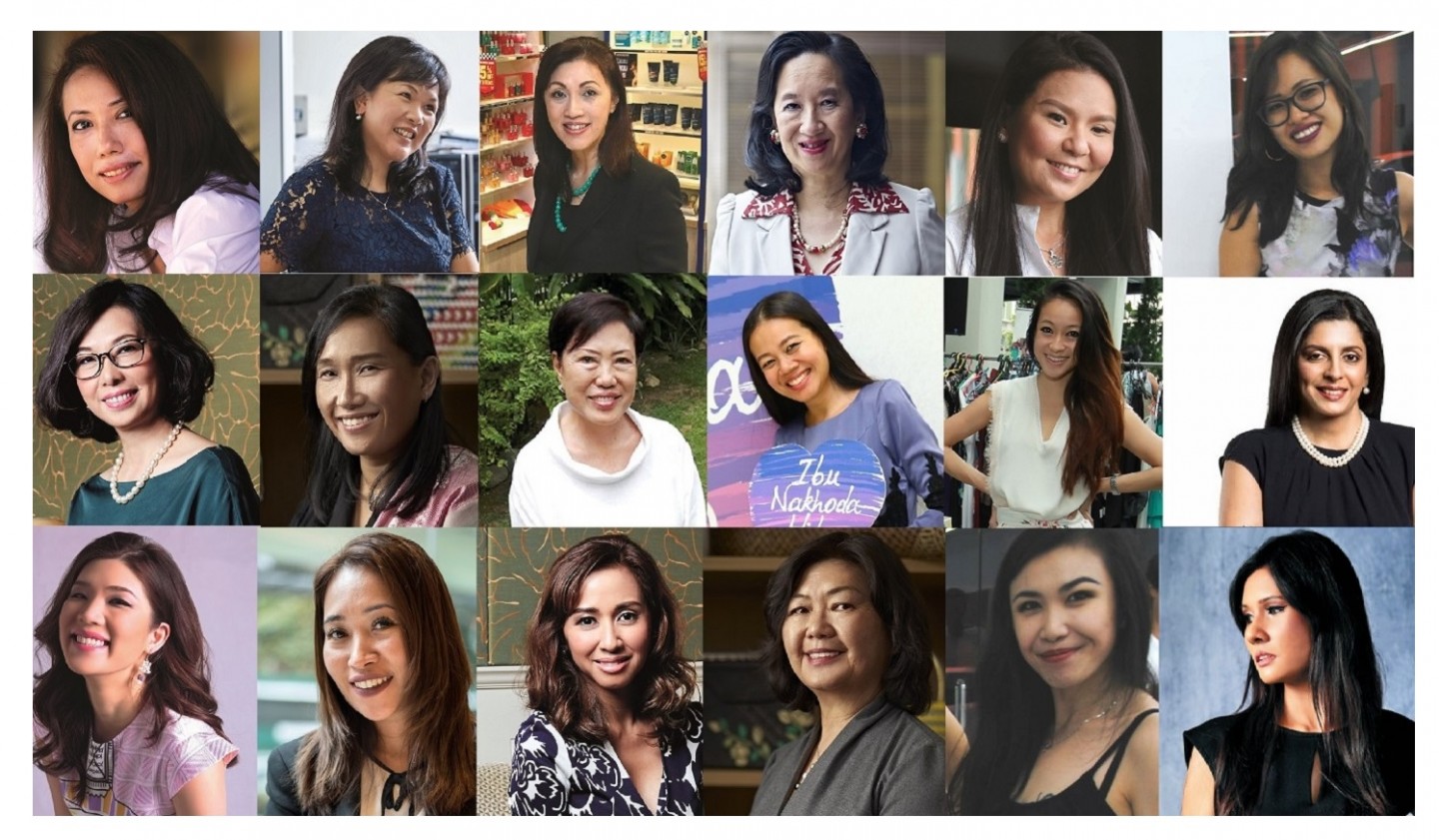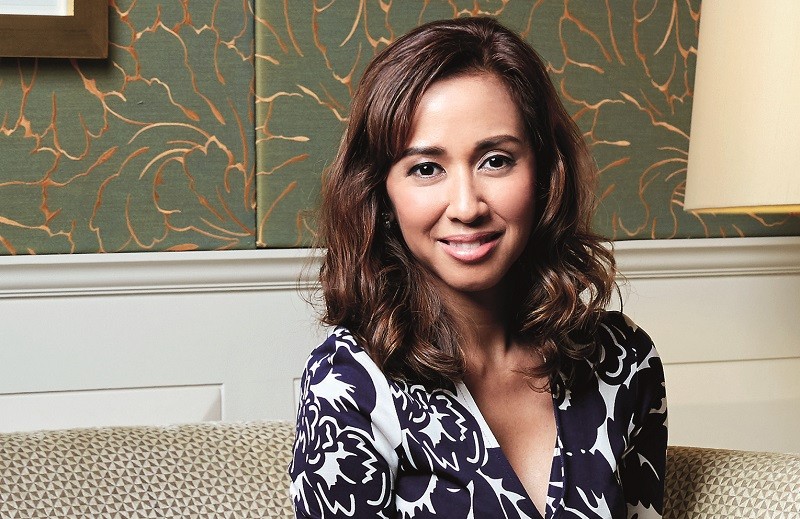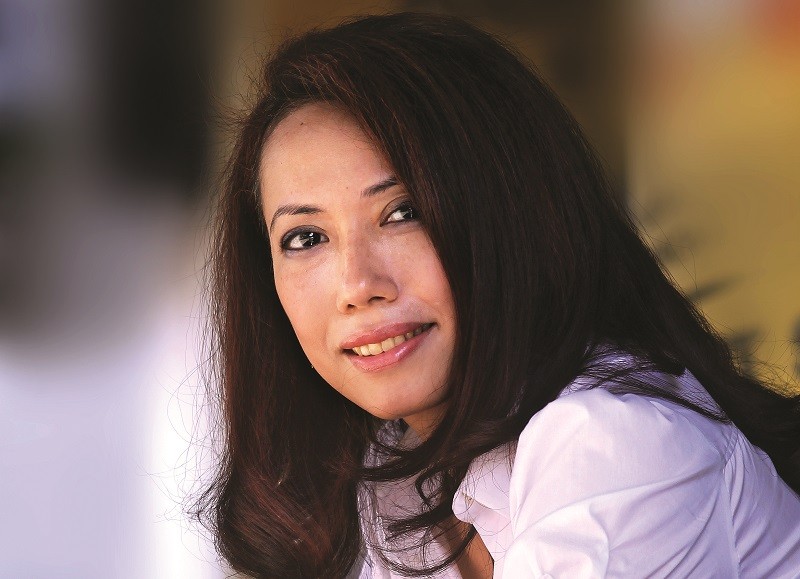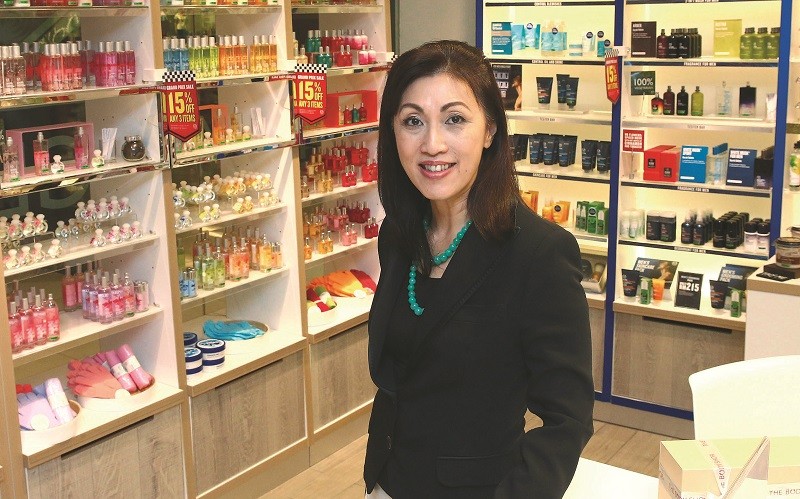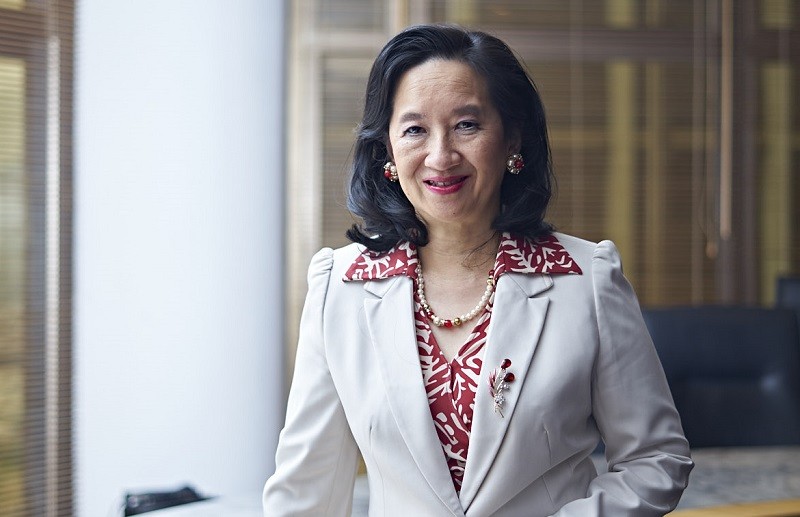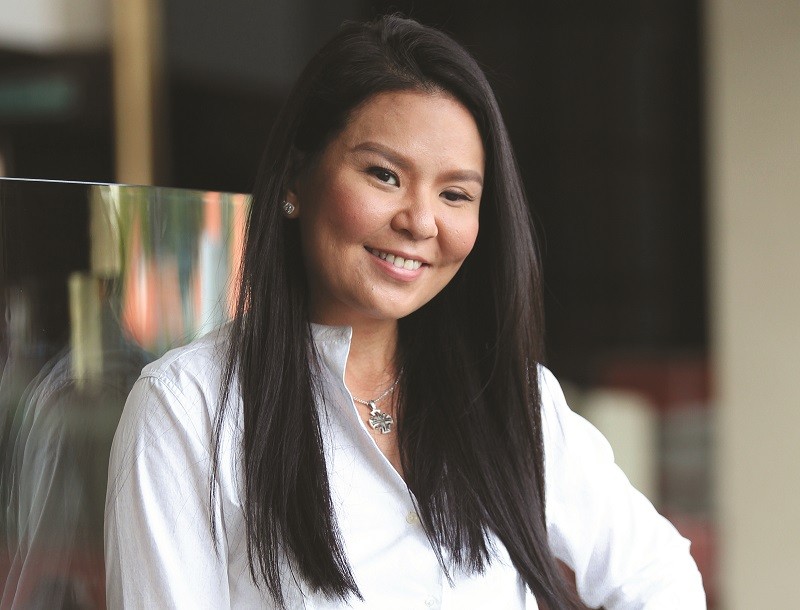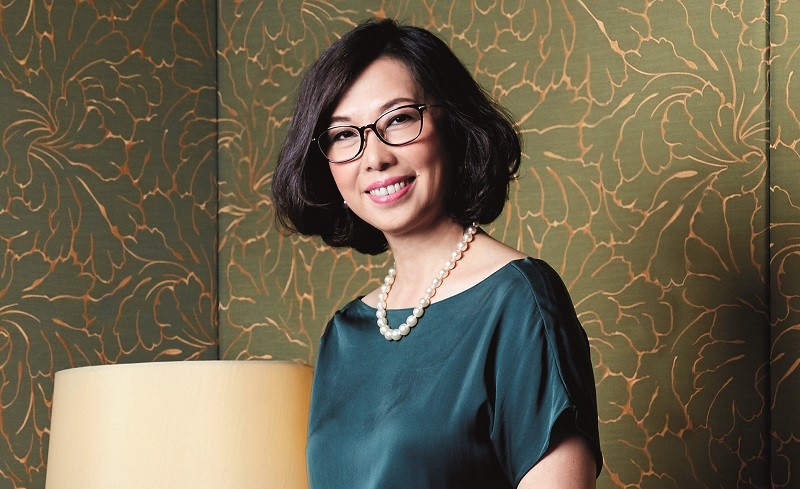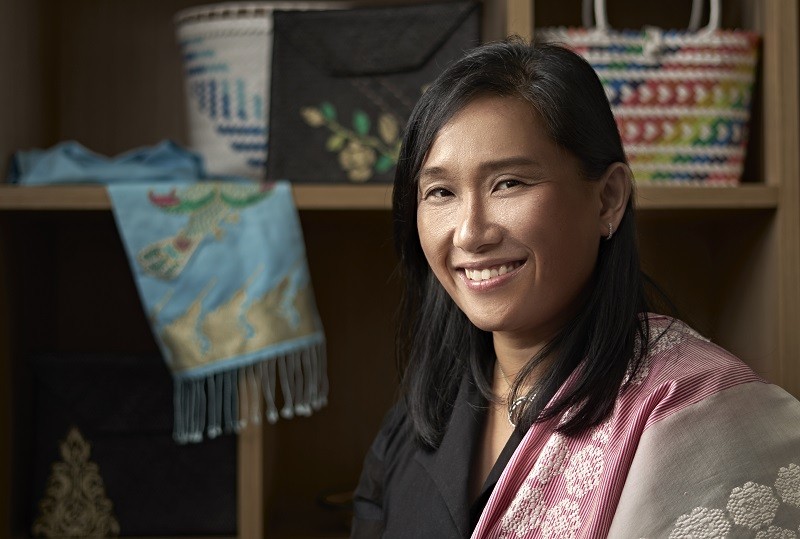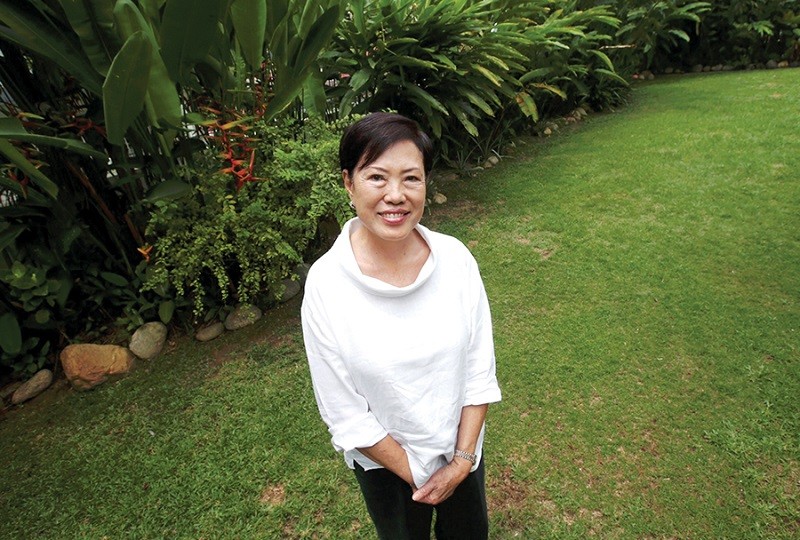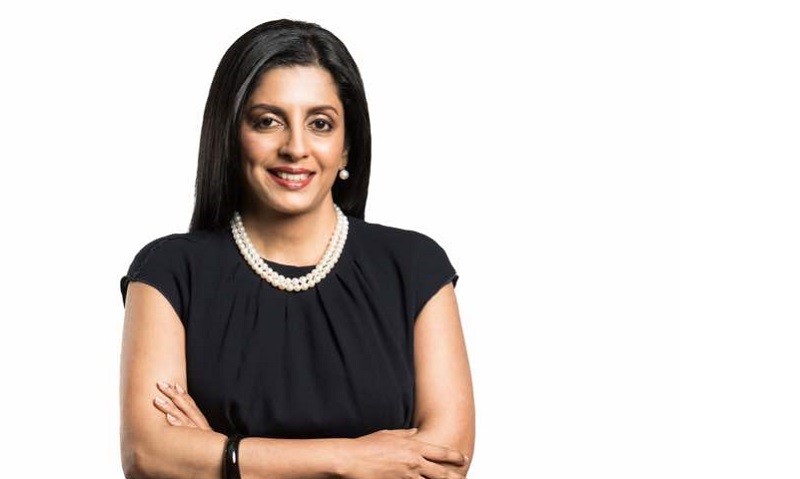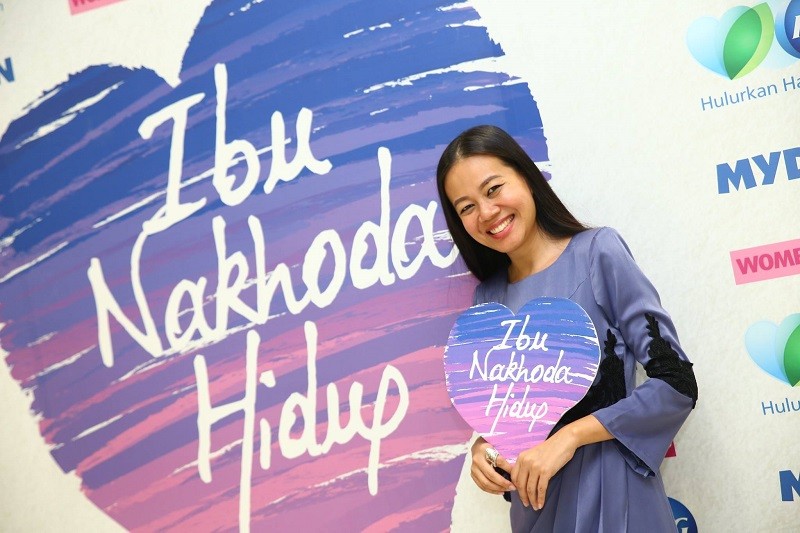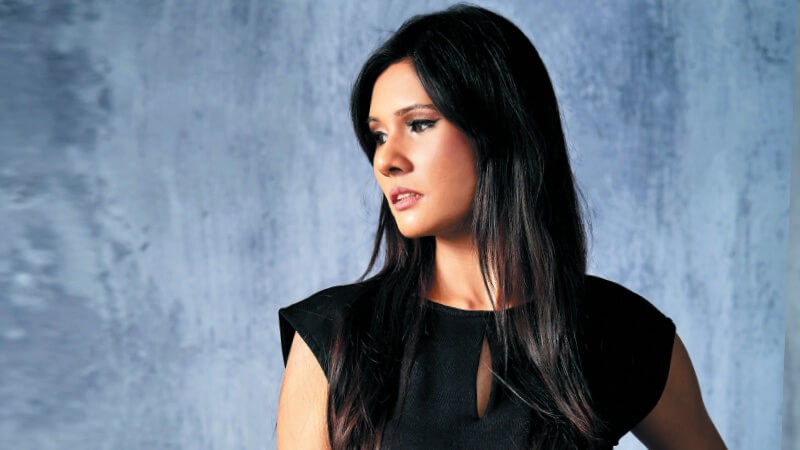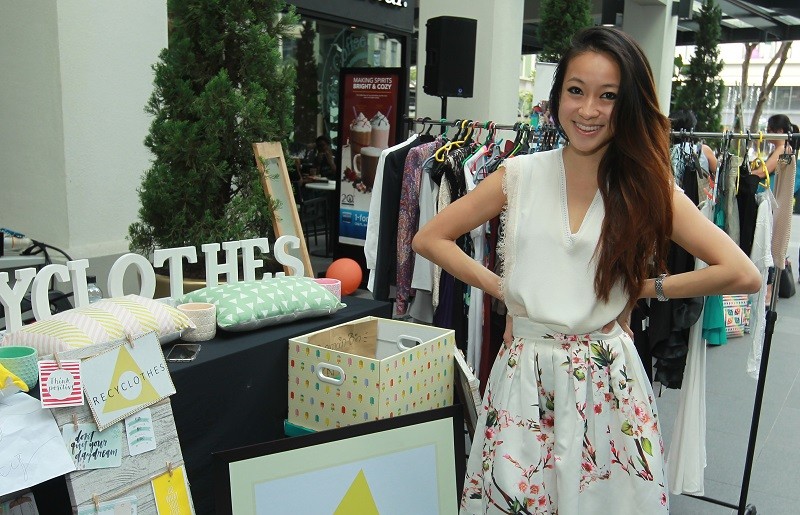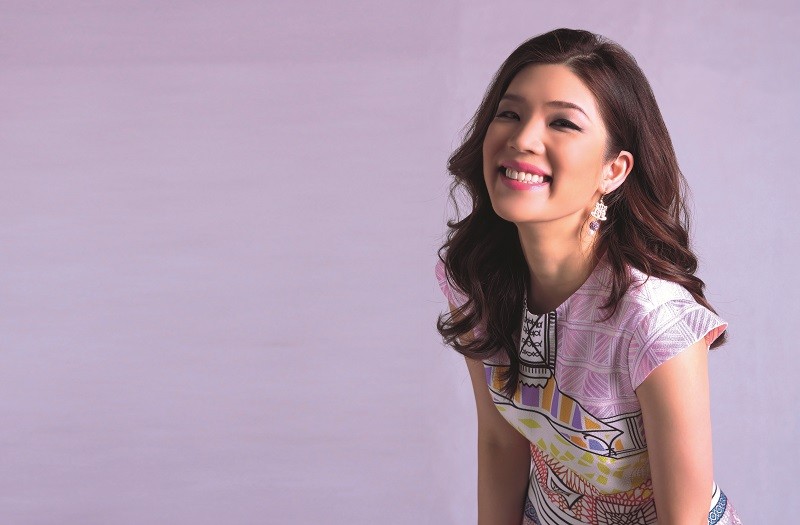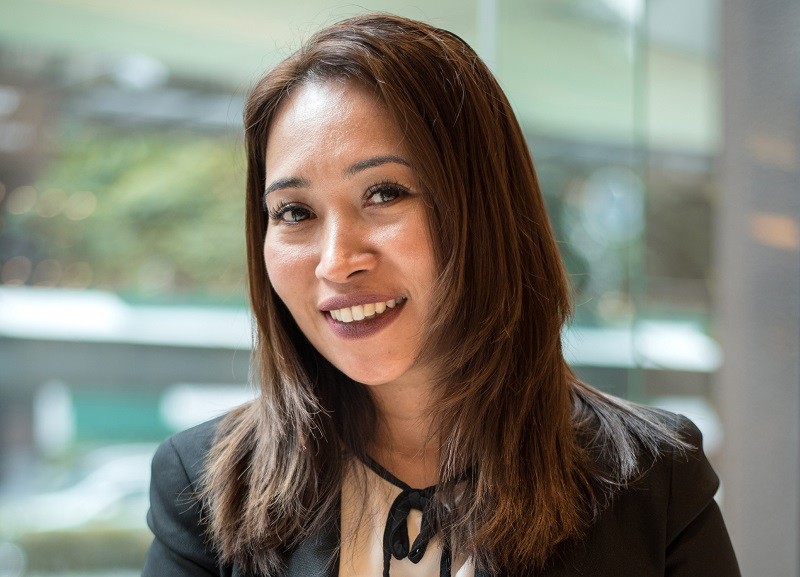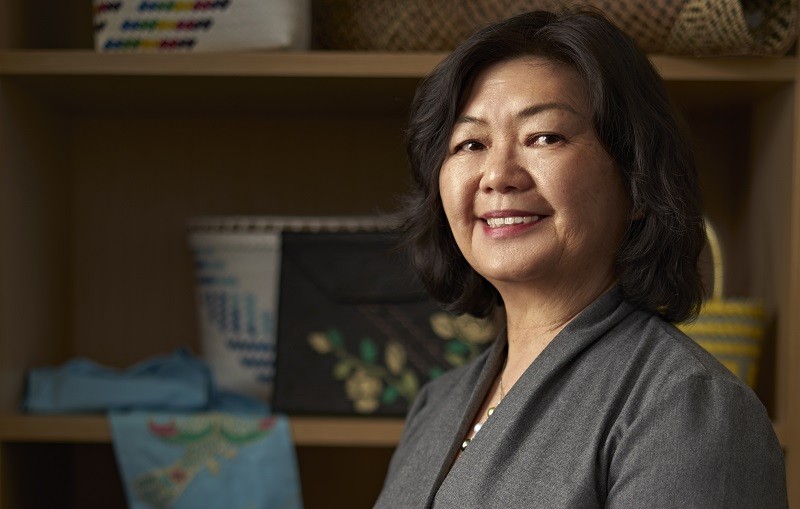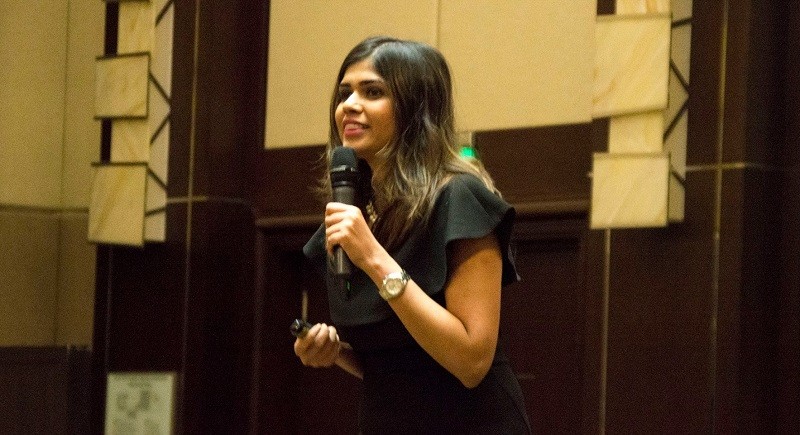Feminism, or being a feminist, has never been more widely proclaimed than it is now. Since last year, women around the world have rallied behind hashtags such as #MeToo and #TimesUp, courageously outing sexual predation by aggressors and high-profile men who have assaulted and harassed them with impunity. But for all the victims who have the strength, celebrity power or social media influence to tell their ordeal, there remains a community of women or girls who lack the support or opportunity to share theirs. These are the #MeToo or #TimesUp stories we're not hearing.
Here’s the gutting truth: Sexual assault, gender divide, discrimination and misogyny are still prevalent – and we shouldn't need hashtags to remind us that. The more depressing thought may be that in a society where rules and law are in place, women’s rights and welfare are still effectively denied because “we’re never good enough”, so they say. How do we tell young girls, who aspire to be heads of governments, CEOs, tech engineers or even just loving but driven working mothers, that there's still no escaping the corrosive culture of patriarchal supremacy?
Tengku Zatashah Idris
Royal patron of Make-A-Wish Malaysia
Malaysia is working hard to empower women. The government has declared 2018 as the Year of Women Empowerment, and engaged me as one of the icons to help push forward this agenda with the Ministry of Women, Family and Community Development. Since 2011, Malaysia has targeted to have 30% of women on the boards of public-listed companies.
I was one of the graduates of the Women Directors Training Programme to help facilitate more womento attain board positions. I am an independent non-executive director of a PLC myself now. The Prime Minister has also been strongly urging PLCs and government-linked companies to join the 30% Club Malaysia to have more women on board for diversity. The government has also stated that it would like to see 59% of women in the workforce by 2020. Currently the figure stands at 56%.
I think these are great steps towards women empowerment but we must never rest on our laurels as we still have some way to go. I have submitted my proposal as Ikon Wanita to the ministry on the four key areas where we can push this agenda: furthering career development, women empowerment education for girls, health and fitness, and empowerment for urban poor women. I am looking forward to collaborating with the ministry on the betterment of women in our nation. It’s a worldwide challenge, but at least what is heartening is there are open discussions and ideas on how to improve gender parity.
Prof Dr Teo Soo Hwang
CEO of Cancer Research Malaysia (CRM)
The corporate scene in Malaysia is making the right moves in placing more women in leadership roles on the board and in senior management. But we remain a male-dominated world, especially in science, technology, engineering and mathematics (STEM). While there is increasing awareness of great female leaders in the corporate world, there is less awareness of Malaysian female scientists, such as Datuk Dr Mazlan Othman, Prof Adeeba Kamarulzaman, Prof Looi Lai Meng and many others making an impact in diverse areas, from astrophysics to medicine.
We can all do more to promote the achievements of women, and work together to recognise the role of women leaders in making a difference through science. We can help mentor young female scientists to enable their careers to flourish and encourage them in STEM. At Cancer Research Malaysia, we have an amazing group of women (and men) on the board and at leadership levels and I believe that diversity ensures strength.
Snow Ng (left) and Liza Ho
Founder of OUR ArtProjects
We feel that women today are more visible than ever (our bodies do walk first). Unfortunately, we sometimes are too eager to participate in that 'otherness', which in turn further enforces a kind of reverse prejudice onto ourselves. It is important for women to first acknowledge the existence of layers and sublayers of cultural barriers and societal norms. To overcome them and move forward, we should divert our focus and energies to what we do best (and do it damn well). In some instances, women do not realise that our unconscious bias often build barriers for other women. We need to stop doing that.
Dina Zaman
Writer, author and founder of IMAN research
This is a time where validation is judged by the number of likes on social media and popularity as a ‘brand’. There are countless articles deriding this phenomenon but there you have it: Life in the 21st century is not about intrinsic, core values. I see so many young women (and men) seeking that, as they aspire to be a poet, writer, architect, and finding that their voice is unheard, they fall into a funk or, at worst, depression.
I’m old school. It’s one thing to increase your visibility at work, in society, for whatever reason, but we have forgotten that the main thing is to do the work. It’s crazy to want to be judged and accepted by peers and society at large, just to be a name. We have forgotten to be curious, that good work takes time and values leave a legacy that is so needed in a materialistic world.
My advice: Whatever you do, don’t do it for the fame. Do it for you, for a community; do it out of curiosity. And have a sense of humour while you’re at it. People who take themselves too seriously are boring.
Datin Mina Cheah-Foong
Managing director of Rampai-Niaga
I don’t agree much with [the late] chairman Mao but he was spot on in saying that “Women hold up half the sky”. While nobody will argue with that, the sad irony is that we do the work but often don’t get the pay. A group of women can bring a gentler and more civil atmosphere to the workplace. More often than not, we temper aggression, reduce swearing, include family, and tritely but truly encourage more smiling!
There is now just more of us, and quantity alone has helped other women become more comfortable about holding full-time jobs. It’s not easier but it makes me feel less lonely and I believe we provide signposts for other women to know that “Yes! It can be done!” Women CEOs are no longer a rarity. It has been a long while since I noted any overt sexism (such as always expecting a woman in the room to order the coffee!) However, we need to move large numbers of women up the corporate ladder.
We also want to talk business on the golf course, but who has the time? Break the boys’ club attitude — stop holding golf meetings; organise planned networking sessions and not the general after-hours casual meet-ups. We need access to quality childcare and help on the home front. Parents need to be conscious about raising their children to be equals. Daughters are still taught to be caregivers and some of us do want or need to be that, so we need flexitime. We need equal paternity leave as opposed to more maternity leave. Let fathers take on equal responsibility for infantcare early on. Spread this business cost to married couples and not just married women. Enforce the 30% female board members rule. Again, having more women in leadership positions will encourage more women. Those amongst us who can must call out sexism when we see it. We should develop zero tolerance of sexist jokes or behaviour in work situations.
Datin Grace Yeoh
Managing partner Shearn Delamore & Co
Women in Corporate Malaysia today are as inexorable and inevitable as the high tide. In the last two to three decades, more Malaysian women have had access to tertiary education. As with their contemporaries in the more developed countries, these women have slowly, but surely, worked their way up the corporate ladder and now form a large number of the C-suite in many service industries. Women professionals, such as doctors, lawyers and accountants, are already at the top. Other industries are close behind. In Corporate Malaysia, there is no stopping the wave of women rolling in.
As for achieving gender equality in the workplace, why do we even want to do that? It’s not practical or possible. Some jobs are more suited to men and others to women because of the nature of the job. There cannot be a rule of gender equality for all jobs. The question should really be: How do we remove gender bias and also facilitate someone remaining in the workforce, bearing in mind those (male or female) having the dual role of career person and keeper of the household? This applies not just to women.
Datin Sue Ding
Partner at Desai Ding and Oberoi Solicitors
Women are the backbone of the workplace as they provide a balanced and controlled perspective on all things and are able to add common sense to everyday things! They are also strong, committed and driven – they need to be to get ahead. It’s still a man’s world out there, so to survive and be heard, one must be driven. I believe things have improved but there is still a long way to go. The old boys’ club still exists and it can be hard to break into that. Gender parity should be a given but quite simply, a woman needs to be one step ahead of the rest.
Irene Tan
CEO of Make-A-Wish Malaysia
We need to change our perception that a woman can only contribute to the betterment of our society if she is in a power-suit. I have met countless mothers (and grandmothers) who bring together the family unit, look after the childre’s welfare, marriage and finances even when the family is going through adversity. Just because she isn’t in a executive position or employed, it doesn’t mean she plays a lesser role compared with a man.
Jacqueline Fong
Director and co-founder of Tanoti
The ladies we work with are not merely mothers, sisters, daughters and caregivers. They are more than that — they are craft artisans. As artisans dedicated to producing handicraft, they are custodians of culture and custom, of heritage and identity. We owe them many thanks for keeping alive what makes us Malaysians.
Janet Yeo
Founder-chairwoman of National Stroke Association of Malaysia (Nasam)
Women have an equally — if not more — important role in society as men. Women, especially homemakers,have a decisive influence on the future because they nurture and shape children. Many leaders and icons in our society acknowledge that the hand that rocks the cradle rules the world. Even the illustrious Robert Kuok attributes his success to his mother. She imparted the values that guided him in his business dealings. I personally do not think women are less smart or less capable. When given an opportunity, women can turn a red balance sheet black. Society has to change and treat women as equals.
Leela Barrock
Former journalist and director of Leela Barrock & Associates
There are more woman in visible leadership positions today than there has been ever before. The word “visible” is key because there were always women in corporate circles in the past but they were often described as “the woman behind so and so ...” Today, our women leaders have come into their own, not just in supporting roles, but in the C-suite, at the top of their game. Many of them had to work twice as hard as their male colleagues to get to where they are. These women are of course capable, hard-working and driven but they also have the necessary survival instincts to thrive in the corporate jungle.
Their success is important because they have shattered the glass ceiling for future generations of women leaders.
I have never been a fan of quotas or affirmative action policies, but it is perhaps necessary at the beginning of a journey, to have guidelines and quotas to force a change in attitudes. However, we must work towards ensuring that ultimately, the only considerations for career advancement are capacity and the ability to perform and deliver real value. Until we reach that utopia, we need rules to move ahead.
Several years ago, the CEO of a listed company sought my views on a candidate for its board of directors. I suggested a woman, not just any woman mind you, but a leading light, acknowledged by all who know her as a luminary. However, the CEO had this to say: “We already have one woman on our board. That’s enough?” He saw her as a “woman” first, not anything else.Today, the lady in question is the chairman of a large PLC because some other man did not see her as a “woman” but a “leader”.
I don’t think we should leave these things to chance anymore. We cannot leave the power of choice in the hands of small-minded men who need to nurture the little boys’ clubs that have ruled over the world for centuries. We need to ensure that there is parity not just in initial employment, but also in subsequent opportunities for career development. We must ensure that women are offered equal opportunities to learn and grow, that they have access to training and development programmes. Today, we need institutionalised structures, affirmative action and quotas to ensure that gender discrimination is wiped out. Once gender ceases to be a consideration, Malaysia will be better for it.
Low Ngai Yuen
Founder of WOMENgirls (Pertubuhan Pembangunan Kendiri Wanita Dan Gadis), president of Kakiseni and executive director of GEM (Global Entrepreneurship Movement)
Whether they realise it or not, women are becoming role models to an increasingly larger audience. Where they used to be just daughters, nieces and workmates before, their roles have now widened through the various social media platforms. When women pave new paths and stand up and voice their thoughts, the ripple effect is bigger and measurable. This is our golden age/opportunity to make sure we are using all the available resources to help the next generation of girls achieve parity in opportunities.
Be aware that the fight is to level the playing field, not to ask for gender-specific privileges or benefits. In addition, because we need to be better role models, we need to actively seek out more occasions to walk the talk and get our messages heard. The key here is to be industrious in attending events and networking so we can be prominent publicly, and be present with a clear message. When a message gets heard repeatedly, it will be adopted.
Michelle Yesudas
Lawyer and activist
Gender equality in Malaysia is a work in progress and we will not be here without the struggles and sacrifices of women before, but there is a lot of work to be done. I am increasingly concerned with how women in the public and political spheres still get rape threats, and are shamed into conforming to society’s expectations when they speak out. We should be working together to create safer spaces for women to speak up, and to work. We need to teach men that rape threats and rape are unacceptable. Rape is a crime and we need to identify aspects of our social circles and our workplaces that perpetuate rape culture and fight it, one step at a time.
Rebekah Yeoh
Founder of Recyclothes and corporate finance manager at YTL Corp Bhd
I believe the role of a woman in society is to support those people closest to her in whatever form she can, with her resources. This does not hinge on finance, job specifications or how successful she is. Women are blessed with skills unique to their nature and which enable them to empathise with sensitive issues and create conducive environments for the people they love and support, be it at home, in the workplace, business leadership or the government.
Shentel Lee
Designer and co-owner of Sereni & Shentel and Bowerhaus
What I know about women in the workforce is what I learnt from my mother and father. I grew up in a family where women were seen as equals and encouraged to go out and do the same things that men do. I always saw my mother doing what she loved outside of the home while still caring for us. I was lucky to have been sheltered from the gender inequality that is still so present in our society. Like my mother, I, too, joined the workforce and never doubted for a moment that it was a place where I could be treated as an equal. If something bothered me, I spoke up. I think I have been lucky to have worked with many like-minded men and women in my field who respect each other’s profession, regardless of gender. I know, however, that I am part of a small minority in the big scheme of things. So how do we make change?
As a mother of two boys I feel it is my job and responsibility to raise them to be the change. The way we educate our sons as important as how we raise our daughters. If we don’t instil in our youth, from birth, that we are equal through education and practice, I don’t think change is possible. My hope is that by the time my great grandchildren are born, 50% of seats in government worldwide will be filled by women and that salaries across the board will be equal. Considering how far we as women have come, I don’t think it’s something we cannot achieve.
Angeline Liau
Marketing director of BÖN Estates Sdn Bhd
The role of women in the corporate workplace has evolved. In fact, according to the national survey of labour workforce, the percentage of women entering the workforce is increasing year on year. Women have been appointed leadership roles in various corporate entities. This is certainly a growing trend worldwide.
As a working mother myself, encouraging and supporting working mums (especially new mothers) is highly important. This would encourage women to return to the workforce, although some left it as a choice to care for their family. A good example will be to provide breastfeeding rooms or even flexible working hours. BÖN Estates is a great example. We have a big number of female team members – many of whom are working mothers with young children. Flexibility also encourages higher productivity among team members. Of course, similar support is also extended to our male team members.
Tengku Badariah
Director of sales, Four Seasons Hotel Kuala Lumpur
Over the years, gender equality issues have cropped up in many workplaces. The good news is that women are becoming more and more empowered in the corporate world. In fact, an article in CNN states that “companies with a high representation of women board members significantly outperformed those with no female directors”. In other words, the more diverse leaders there are on the issue, the better the rate of success. My advice is to promote gender equality in the office by creating a group of in-house advocates. Having employees who champion this advocacy means they can oversee short-term, and sustain long-term, actions geared towards equality.
Violette Tan
Chairwoman of Helping Hands Penan
As the world celebrates IWD in recognition of women’s achievements in all arenas, may we also salute disadvantaged women who have overcome challenging conditions. At Helping Hands Penan, we have the privilege of working with incredible women, from the Penan women who harness traditional skills to weave their communities out of poverty to the girls who defy all odds to gain education and achieve their dreams. With the collective effort of volunteers and supporters who have extended helping hands, we stand united as women from all spectrums of life to make this year’s IWD theme of “Progress for Change” a reality by empowering Penan Women by supporting them through weaving and education.
Hetal Doshi – Suhana Daswani
CEO of Organisational Psychologist & Certified Professional Coach
The only way to ensure the role of women in the workplace reaches its truest potential is by first asking why we still see women underrepresented at all levels of leadership, even when they are as qualified as their male counterparts. Research shows that 75% of the general population has a faster association with male-career and female-family. Other biases that prevent visibility of women at the top include “think male, think leader bias”, “the glass cliff bias”, “the double bind bias”, “maternal bias”, “performance attribution bias” and “performance evaluation bias”. The truth is that experiencing even 5% of these biases could reduce the chance of a woman’s promotion, compared with an equally competent male counterpart, from 50% to 29%. Therefore, to see more women in leadership positions, societies must continue the feminist revolution, organisations must continue to challenge its policies and systems and women must take vested personal interest to increase their will and skills to navigate successfully.
